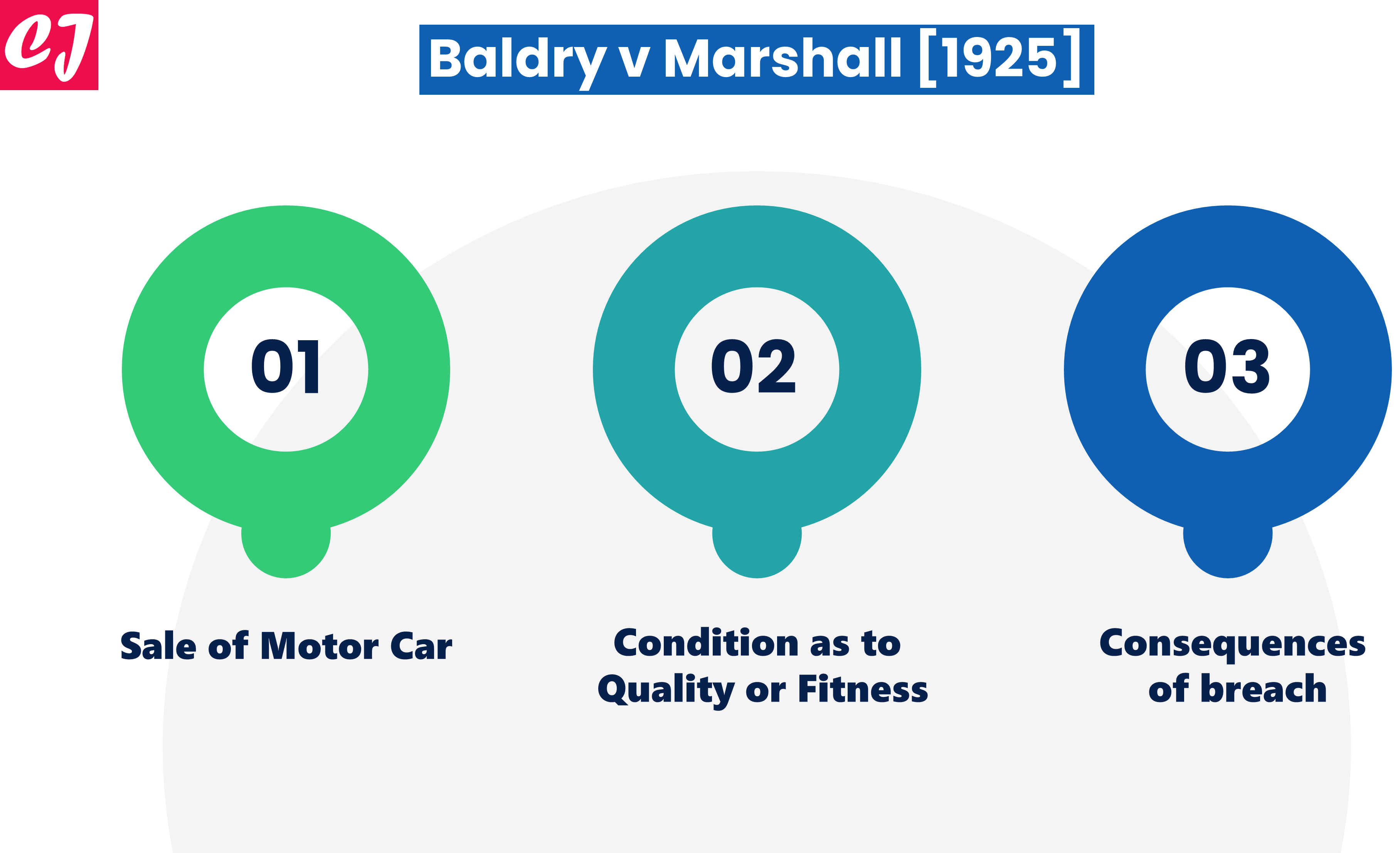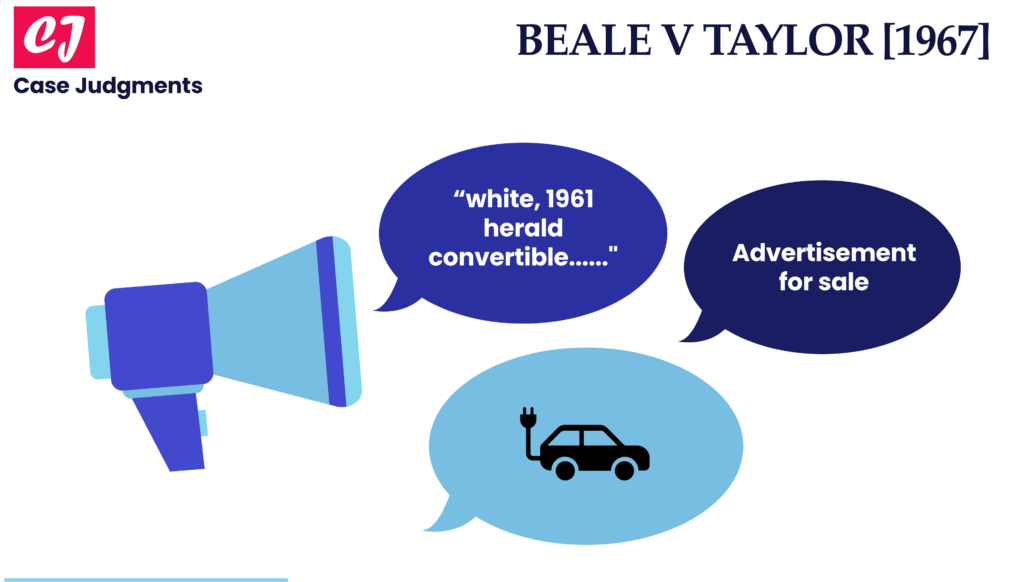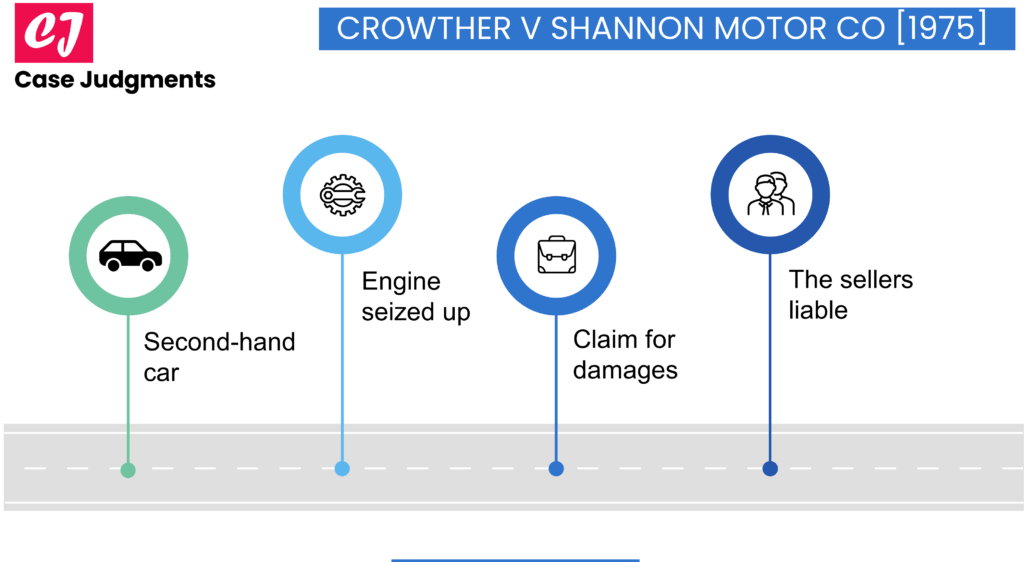
Baldry v Marshall [1925]: A Case Summary
Case name & citation: Baldry v Marshall [1925] 1 KB 260
- Decided on: 1924 Nov. 20.
- Court and jurisdiction: The Court of Appeal (King’s Bench Division)
- The bench of judges: Bankes, Atkin and Sargant L.JJ.
- Area of law: Condition as to Quality or Fitness, Sale of Goods Act
What is the case about?
This is a famous case concerning the implied condition as to the fitness or quality of goods sold to a buyer by a seller.
Facts of the case (Baldry v Marshall)
In this case, the plaintiff consulted the defendant, a car dealer, to find a motor car ideal for touring. The defendant recommended a “Bugatti” car, and the plaintiff followed his advice by purchasing it. The written contract disclaimed any “guarantee or warranty, statutory or otherwise” on the part of the defendant. The car proved to be unsuitable for touring. So, the plaintiff rejected it and sued to claim what he had paid.
Issues raised in the case
Was there a breach of an implied condition? If so, could the plaintiff recover the amount?
Did the written contract disclaim the defendant’s liability for breach of a condition?
The decision of the Court in “Baldry v Marshall”
It was decided that the requirement that the “car should be suited for touring purposes” was a condition of the contract. It was so crucial that failing to fulfill it would have destroyed the whole reason as to why the plaintiff had purchased the car. Therefore, he had the right to reject the car and seek a price refund.
Further as regards the liability exclusion clause was concerned, the Court observed that since there was no exclusion for the breach of a condition, the defendant was liable.
The essence of the case
Many times, a seller of goods makes certain assertions concerning the goods he provides for sale. These claims may pertain to the quality, use, suitability, utility, and so on of such goods. These assurances may be a general statement of the seller’s opinion and may not form part of the contract. However, they may sometimes become part of the contract, and the customer purchases the goods on the basis of such assurances. In such a circumstance, they have a legal effect on the contract. When an assurance or stipulation constitutes the very foundation of the contract, it is called a “condition”.
As a result, a condition is a term that goes to the heart of the contract and so serves as its foundation. It is critical to the primary purpose of the contract. It is that requirement, if not met, could be considered a significant failure to perform the contract at all. As a result, if a condition is not met, the buyer has the right to cancel the contract and seek damages for breach of contract.
In the given case of Baldry v Marshall, there was an implied condition that the car shall be suitable for touring purposes. This condition constituted the very foundation of the contract based on which the buyer purchased the car. And since that condition was not met when the car was found unfit for use, the buyer was entitled to reject the car.
Here, another point is also important. One must know that when a buyer specifies a patent or other trade name when purchasing a product, there is no implied condition of the fitness of the goods for any particular purpose. Because the customer defines the products by providing the trade name, the seller’s only responsibility is to make sure that the goods are of the same trade name that the buyer has specified.
This provision applies when the buyer purchases by mentioning the trade name and does not rely on the expertise and judgement of the seller as to the appropriateness of the goods for any particular purpose. However, if the buyer specifies the trade name but still relies on the experience and judgement of the seller as to the suitability of the goods for any particular purpose, the implied condition of fitness applies in such a situation.
In Baldry v Marshall, the seller recommended their “Bugatti car” and the buyer ordered an “Eight-cylinder Bugatti car” which was then supplied. But on finding the car unfit for the desired purpose, he rejected the car and claimed to recover the money back.
It was determined that he was within his rights to do so because the plaintiff, despite ordering the car by its brand name, was still relying on the opinion of the seller regarding the fitness of the car for the specific purpose.
List of references:
- Conditions and Warranties, Unit 17. (n.d.). Egyankosh. https://egyankosh.ac.in/bitstream/123456789/13421/1/Unit-17.pdf
- Conditions & warranties, Unit 2. (n.d.). http://law.uok.edu.in/Files/5ce6c765-c013-446c-b6ac-b9de496f8751/Custom/Conditions_and_Warranties.pdf
- Exclusion Clause Case Summaries. (n.d.). LawTeacher.net. https://www.lawteacher.net/cases/exclusion-clauses-cases.php
You might also like:
More from sale of goods:

